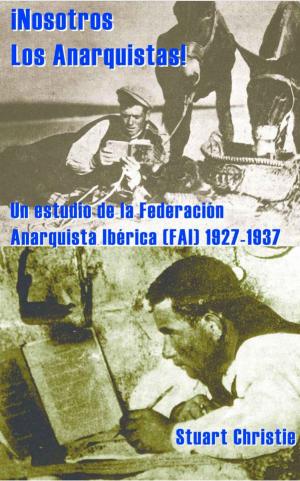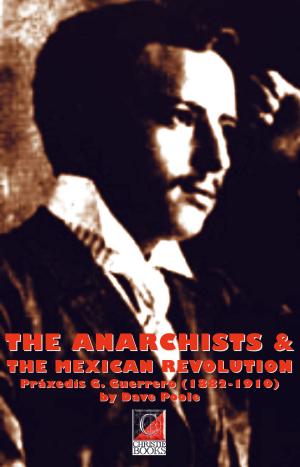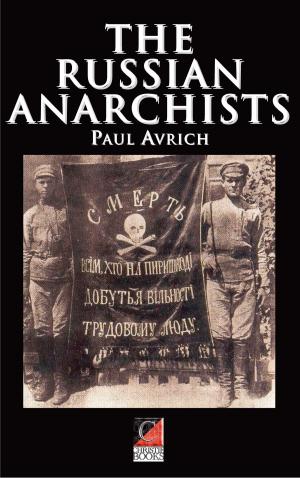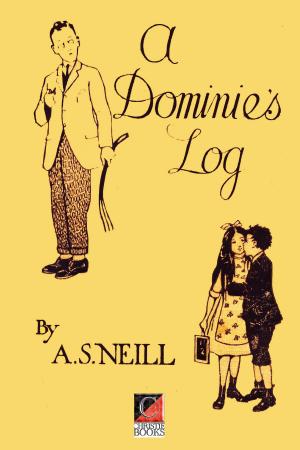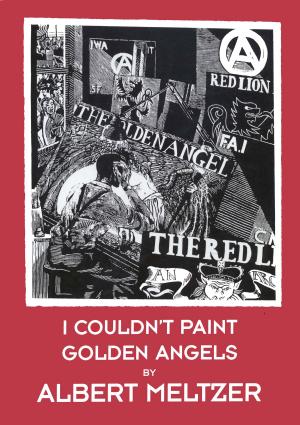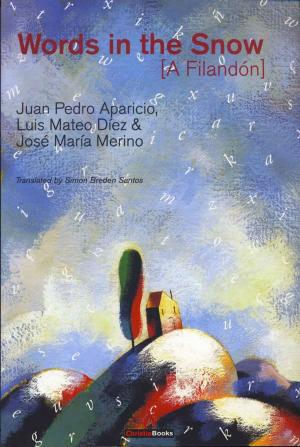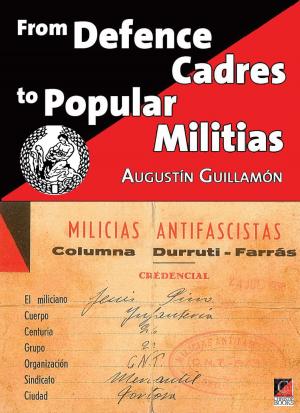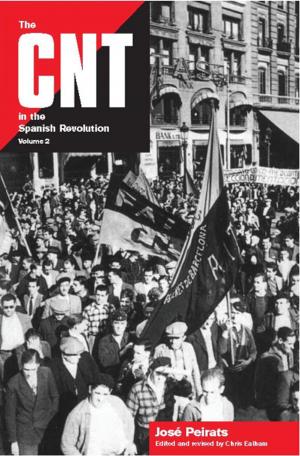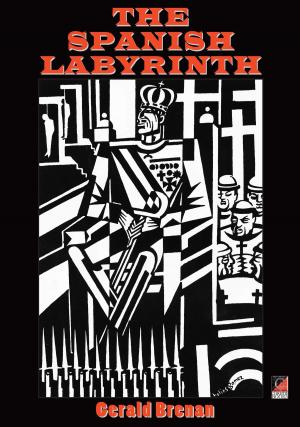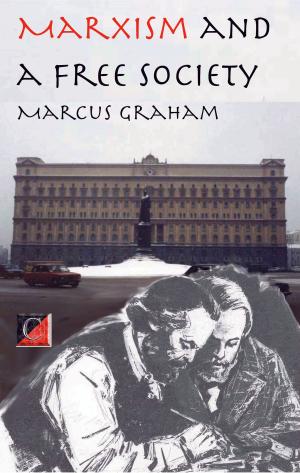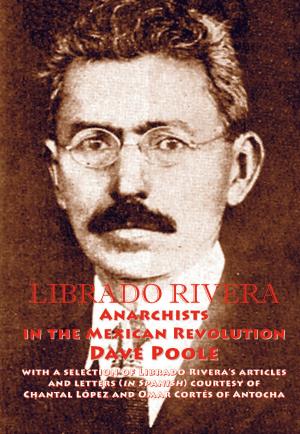LECTURES AND ESSAYS (Vols. I-IV)
Nonfiction, Religion & Spirituality, Bible & Bible Studies, Bibles, Philosophy, Ethics & Moral Philosophy, Christianity, General Christianity| Author: | Robert G. Ingersoll | ISBN: | 1230000724371 |
| Publisher: | ChristieBooks | Publication: | October 16, 2015 |
| Imprint: | ChristieBooks | Language: | English |
| Author: | Robert G. Ingersoll |
| ISBN: | 1230000724371 |
| Publisher: | ChristieBooks |
| Publication: | October 16, 2015 |
| Imprint: | ChristieBooks |
| Language: | English |
A collection of the Lectures and Essays (Vols. I-IV) of Robert Green “Bob” Ingersoll (August 11, 1833 – July 21, 1899), nicknamed “The Great Agnostic” — one of outstanding orators, humanists, agnostics and freethinkers of his time — whose radical views on religion, superstition, slavery, woman's suffrage, Shakespeare, Voltaire and other issues of the day continues to exert a powerful influence across the generations and continents.
“… It is beyond question that in its severer forms theology has an extremely noxious influence—an influence from which, so great is the vitality of error, it is a hard task for humanity to deliver itself. Ingersoll's work has a positive aspect of undeniable value. In his belief that human activity is limited to the present life he was a Secularist. In his rejection of the problematical he was an Agnostic. Beyond the known he declined to go. One life at a time was enough for him. If there should prove to be a future state, no man, he held, would be punished for being unable to believe in it. The ideas of God and immortality are speculative conceptions, on which negative opinions are not merely defensible, but legitimate. Ingersoll believed in being true to himself, and in recognising the eternal limitations of human thought. His vehement criticism of the Bible was prompted by the conviction that the Bible has been a serious stumbling-block to the progress of civilisation; and if he was at times too uncompromising, it must be said that the extravagances of the popular theology furnished him with ample excuse. His constructive work consisted in emphasising the claims of the secular life, with its basis of certain knowledge, as against the claims of the religious life, with its basis of dubiety. The schoolhouse was his cathedral, and the universe his Bible. He believed that happiness is the only good, reason man's only light, justice the only worship, humanity the only religion, and love the only priest. He believed in moral causation, in liberty, labour, intelligence, education, good health and good fellowship all round. Such a gospel may omit some of the finest elements of a well-rounded life, but a man who believes in this gospel as fervently as Ingersoll did cannot go far wrong in forcibly proclaiming it. Ingersoll was reproached with hammering away too persistently at the falsities and barbarisms of the Old Testament. Here he found a splendid opportunity, and he made relentless use of it. The believer naturally objects to the salt being so unmercifully rubbed into the sore place, but it is questionable whether a milder treatment would have served the purpose Ingersoll desired to attain. Nor would he have taken so decided a line if the falsities and barbarities in question had not been alleged to form an essential part of a divine revelation. Had the Bible always been recognised as what it is—a collection of purely human writings—Ingersoll would have let it alone. Extravagant claims provoke bitter rejections. Excessive emphasis mars a good deal of his work ; but while “overdoing it” is always inartistic, it is frequently efficacious. The proof of Ingersoll's success is the impression he made on the orthodox world. Mr. Smith assures us that he revolutionised theology in America ; and it is certain that, as a result of these and similar attacks, doctrines which were once held firmly are now held doubtingly, or altogether abandoned. Within my own recollection leaders of Christian thought have defended such atrocities as the massacres of the Canaanites simply and solely because a book believed to be divinely inspired attributed them to the direct command of God. Against this warping of the moral sense by doubtful authority no protest could be too strong. And when we remember that this idea of inspiration assumed to guarantee wrong was never a certainty, but always, in reality, gravely doubtful, we perceive that a rough-and-ready scepticism may get nearer the truth than learned piety. Only a few years ago so eminent a man as Mr. Gladstone could in all good faith set himself to defend the accuracy of Genesis. Yet now the Encyclopaedia Biblica denies the accuracy not only of Genesis, but of every other book in the Bible as well. John Wesley said that to give up witchcraft was to give up the Bible. If he was right, modern Christianity has done both. But it is hardly logical to abandon the theory of inspiration and still seek to retain the special doctrines which nothing short of inspiration could recommend. The true value of that wonderful expression of the religious sentiment is not diminished by recognising that it is flawed by a multitude of imperfections. And we do not get rid of the imperfections by charging them to Deity, or by stifling the reason and denying their existence. Modern Christianity is reluctantly, but steadily, tending to the conception of the Bible's human origin ; and Ingersoll, more than any other one man, is responsible for the improvement. A furthur reason for many crudities in his lectures may be found in the fact that his appeal was not to the scholar, but to “ the man in the street.” There are still a few millions who hold on like grim death to conceptions which .the student has outgrown ; but the light will reach them in time, and the door-slamming criticism of men like Ingersoll impresses many who cannot appreciate the cautious “ hedging” of progressive theology. It is, I venture to think, to Ingersoll's everlasting credit that against the monstrous doctrine of hell he expended the most tempestuous eloquence at his command. Textual criticism on that subject he disdained, but he played like a master on the strings of our natural human instincts. Ingersoll's exaggerations are not usually very serious. He deals lavishly in “millions” when perhaps a smaller term would suffice, and occasionally throws in a billion or two to emphasise the point. According to him, hundreds of millions have been destroyed for thinking God good ; the Biblical ideas of God are more cruel and brutal than those of the most degraded savage ; Brahma, Osiris, Zeus, and Jupiter were a thousand times nobler than Jehovah ; hundreds of passages in the Bible authorise slavery ; hundreds of offences were punished with death ; the Church fought facts with the ferocity of a fiend ; and so forth. But that was only his playful way of putting it, and we must make allowances. A few mistakes do not matter ; Ingersoll never claimed to be inspired. He was really a truthful man, but he had a good deal of provocation. The judicious reader will discount such rhetorical excursions for himself, while not failing to do justice to the sincere moral feeling that underlies them. Ingersoll was tremendously in earnest, and that was the secret of his power. Courage, humour, self-reliance, and individuality appear in almost every page of his writings. In its way, his style is almost perfect—strong, idiomatic, unmistakeably clear ; as a rule keenly logical, and, in spite of frequent repetitions and occasional artificiality, rising in numberless passages into genuine eloquence and sunny heights of poetry. That he was a controversialist of formidable skill is shown by the discussion which arose in 1881 upon his article in the North American Review. Judge Black, Dr. Henry Field, Mr. Gladstone, and Cardinal Manning entered the lists against him, and were one and all promptly unhorsed. In this controversy may be found some of Ingersoll's ablest work, though here, also, he was perhaps a little too prone to make capital out of Old Testament absurdities. For this let him not be unduly blamed. After all, the Bible has a bad side, and it was the orthodox error in the opposite direction that made Ingersoll in the eyes of many appear to be actuated by virulent bias when he was sincerely following the light he possessed. Anyone who realises what orthodox Christianity has been must feel thankful for the work of Robert Ingersoll...”
— CHARLES T. GORHAM. (From the Preface to the 1945 Watts & Co edition of Lectures and Essays —A Selection)
A collection of the Lectures and Essays (Vols. I-IV) of Robert Green “Bob” Ingersoll (August 11, 1833 – July 21, 1899), nicknamed “The Great Agnostic” — one of outstanding orators, humanists, agnostics and freethinkers of his time — whose radical views on religion, superstition, slavery, woman's suffrage, Shakespeare, Voltaire and other issues of the day continues to exert a powerful influence across the generations and continents.
“… It is beyond question that in its severer forms theology has an extremely noxious influence—an influence from which, so great is the vitality of error, it is a hard task for humanity to deliver itself. Ingersoll's work has a positive aspect of undeniable value. In his belief that human activity is limited to the present life he was a Secularist. In his rejection of the problematical he was an Agnostic. Beyond the known he declined to go. One life at a time was enough for him. If there should prove to be a future state, no man, he held, would be punished for being unable to believe in it. The ideas of God and immortality are speculative conceptions, on which negative opinions are not merely defensible, but legitimate. Ingersoll believed in being true to himself, and in recognising the eternal limitations of human thought. His vehement criticism of the Bible was prompted by the conviction that the Bible has been a serious stumbling-block to the progress of civilisation; and if he was at times too uncompromising, it must be said that the extravagances of the popular theology furnished him with ample excuse. His constructive work consisted in emphasising the claims of the secular life, with its basis of certain knowledge, as against the claims of the religious life, with its basis of dubiety. The schoolhouse was his cathedral, and the universe his Bible. He believed that happiness is the only good, reason man's only light, justice the only worship, humanity the only religion, and love the only priest. He believed in moral causation, in liberty, labour, intelligence, education, good health and good fellowship all round. Such a gospel may omit some of the finest elements of a well-rounded life, but a man who believes in this gospel as fervently as Ingersoll did cannot go far wrong in forcibly proclaiming it. Ingersoll was reproached with hammering away too persistently at the falsities and barbarisms of the Old Testament. Here he found a splendid opportunity, and he made relentless use of it. The believer naturally objects to the salt being so unmercifully rubbed into the sore place, but it is questionable whether a milder treatment would have served the purpose Ingersoll desired to attain. Nor would he have taken so decided a line if the falsities and barbarities in question had not been alleged to form an essential part of a divine revelation. Had the Bible always been recognised as what it is—a collection of purely human writings—Ingersoll would have let it alone. Extravagant claims provoke bitter rejections. Excessive emphasis mars a good deal of his work ; but while “overdoing it” is always inartistic, it is frequently efficacious. The proof of Ingersoll's success is the impression he made on the orthodox world. Mr. Smith assures us that he revolutionised theology in America ; and it is certain that, as a result of these and similar attacks, doctrines which were once held firmly are now held doubtingly, or altogether abandoned. Within my own recollection leaders of Christian thought have defended such atrocities as the massacres of the Canaanites simply and solely because a book believed to be divinely inspired attributed them to the direct command of God. Against this warping of the moral sense by doubtful authority no protest could be too strong. And when we remember that this idea of inspiration assumed to guarantee wrong was never a certainty, but always, in reality, gravely doubtful, we perceive that a rough-and-ready scepticism may get nearer the truth than learned piety. Only a few years ago so eminent a man as Mr. Gladstone could in all good faith set himself to defend the accuracy of Genesis. Yet now the Encyclopaedia Biblica denies the accuracy not only of Genesis, but of every other book in the Bible as well. John Wesley said that to give up witchcraft was to give up the Bible. If he was right, modern Christianity has done both. But it is hardly logical to abandon the theory of inspiration and still seek to retain the special doctrines which nothing short of inspiration could recommend. The true value of that wonderful expression of the religious sentiment is not diminished by recognising that it is flawed by a multitude of imperfections. And we do not get rid of the imperfections by charging them to Deity, or by stifling the reason and denying their existence. Modern Christianity is reluctantly, but steadily, tending to the conception of the Bible's human origin ; and Ingersoll, more than any other one man, is responsible for the improvement. A furthur reason for many crudities in his lectures may be found in the fact that his appeal was not to the scholar, but to “ the man in the street.” There are still a few millions who hold on like grim death to conceptions which .the student has outgrown ; but the light will reach them in time, and the door-slamming criticism of men like Ingersoll impresses many who cannot appreciate the cautious “ hedging” of progressive theology. It is, I venture to think, to Ingersoll's everlasting credit that against the monstrous doctrine of hell he expended the most tempestuous eloquence at his command. Textual criticism on that subject he disdained, but he played like a master on the strings of our natural human instincts. Ingersoll's exaggerations are not usually very serious. He deals lavishly in “millions” when perhaps a smaller term would suffice, and occasionally throws in a billion or two to emphasise the point. According to him, hundreds of millions have been destroyed for thinking God good ; the Biblical ideas of God are more cruel and brutal than those of the most degraded savage ; Brahma, Osiris, Zeus, and Jupiter were a thousand times nobler than Jehovah ; hundreds of passages in the Bible authorise slavery ; hundreds of offences were punished with death ; the Church fought facts with the ferocity of a fiend ; and so forth. But that was only his playful way of putting it, and we must make allowances. A few mistakes do not matter ; Ingersoll never claimed to be inspired. He was really a truthful man, but he had a good deal of provocation. The judicious reader will discount such rhetorical excursions for himself, while not failing to do justice to the sincere moral feeling that underlies them. Ingersoll was tremendously in earnest, and that was the secret of his power. Courage, humour, self-reliance, and individuality appear in almost every page of his writings. In its way, his style is almost perfect—strong, idiomatic, unmistakeably clear ; as a rule keenly logical, and, in spite of frequent repetitions and occasional artificiality, rising in numberless passages into genuine eloquence and sunny heights of poetry. That he was a controversialist of formidable skill is shown by the discussion which arose in 1881 upon his article in the North American Review. Judge Black, Dr. Henry Field, Mr. Gladstone, and Cardinal Manning entered the lists against him, and were one and all promptly unhorsed. In this controversy may be found some of Ingersoll's ablest work, though here, also, he was perhaps a little too prone to make capital out of Old Testament absurdities. For this let him not be unduly blamed. After all, the Bible has a bad side, and it was the orthodox error in the opposite direction that made Ingersoll in the eyes of many appear to be actuated by virulent bias when he was sincerely following the light he possessed. Anyone who realises what orthodox Christianity has been must feel thankful for the work of Robert Ingersoll...”
— CHARLES T. GORHAM. (From the Preface to the 1945 Watts & Co edition of Lectures and Essays —A Selection)

